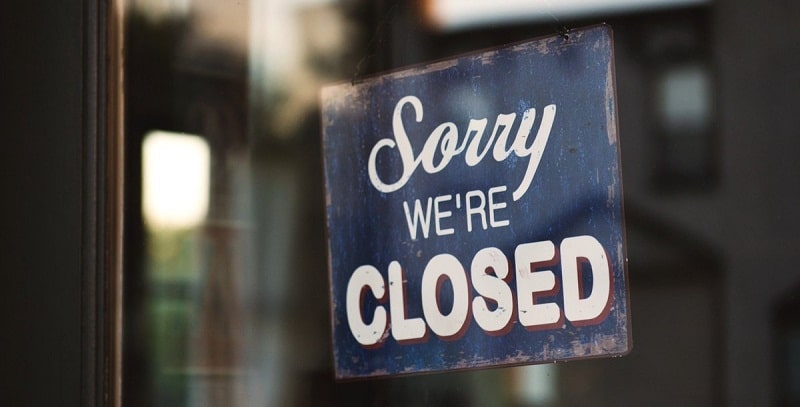Inspired by new ideas and the stories of successful entrepreneurs, we boldly rush into the world of business, not doubting our success at all. And even if in the future we do not periodically flicker on the pages of Forbes and Fortune, then at least we will certainly be able to completely forget about our financial problems, do whatever we want, and even after that we will have a lot of money left for charity.
This is very easy to believe, because we are constantly presented with so many examples of people who achieve their financial and life goals after they dropped out of college.
However, no one will ever tell us about the countless failures that these now successful people made. Everyone now knows the Amazon company and even, perhaps, the approximate value of its assets. But few people remember that this company was not profitable for almost a decade after the dot-com bubble burst. Moreover, their new projects had at least ten major failures. Not to mention the smaller failures, absolutely unknown to anyone.
You will never hear anything about any single person who, despite all his long efforts, has achieved absolutely nothing. Of course, this applies not only to entrepreneurs, but also to athletes, actors, scientists and artists.
We tend to focus only on those things or people who have gone through some sort of selection process, overlooking all those who have failed. This is a common logical fallacy called the survivor bias. For every successful businessman, there are thousands who fail. And the higher we raise the bar, the greater this ratio becomes.
We will try to ignore these facts, even if the failure data will lie on the surface. Why is our brain prone to survivor bias? Because it makes us feel good. This gives us hope for our success.
Also, reading about an unknown actor who failed to charm Hollywood or a development company whose startup failed miserably is not as sexy and glamorous as watching celebrity stories in any field. Everyone loves to hear stories about those who have overcome all difficulties and achieved success, citing them as proof that the impossible is possible.
Can we achieve anything if we try hard enough? Not necessary. Survival bias leads to a misunderstanding of cause and effect. People see the correlation in mere coincidence. And the role of luck in business is quite high.
Survivor bias in the business world is especially prevalent. Companies that fail early on are ignored, and rare successes are celebrated for decades. Market performance studies often exclude companies that fail. This can skew the statistics and make success more likely than it really is. Startups that fail are about 95%. Everyone seems to know about this, but the brain easily ignores this fact and looks towards a certain Bill Gates.
Cognitive biases take you away from rationality, and you may begin to look for those qualities in successful entrepreneurs that you think have made them so. For example, it might seem that most famous billionaires are former outcast thinkers, constantly breaking the rules and taking big risks all the time.
This can lead, for example, to the fact that you will not pay attention to the rational advice of experienced businessmen and the conservative, safer approach to doing business with a moderate degree of risk.
What to do?
None of this means you should ignore the most popular and successful entrepreneurs in the world. Obviously they are doing something right. Rather, the goal is to demonstrate how the survival bias causes us to ignore the potentially damaging disadvantages and consequences of such behaviors and attitudes.
Optimism in moderation is good for health, but in some cases realism is better.
